AUSTRALIAN PAIN SOCIETY NEWSLETTER
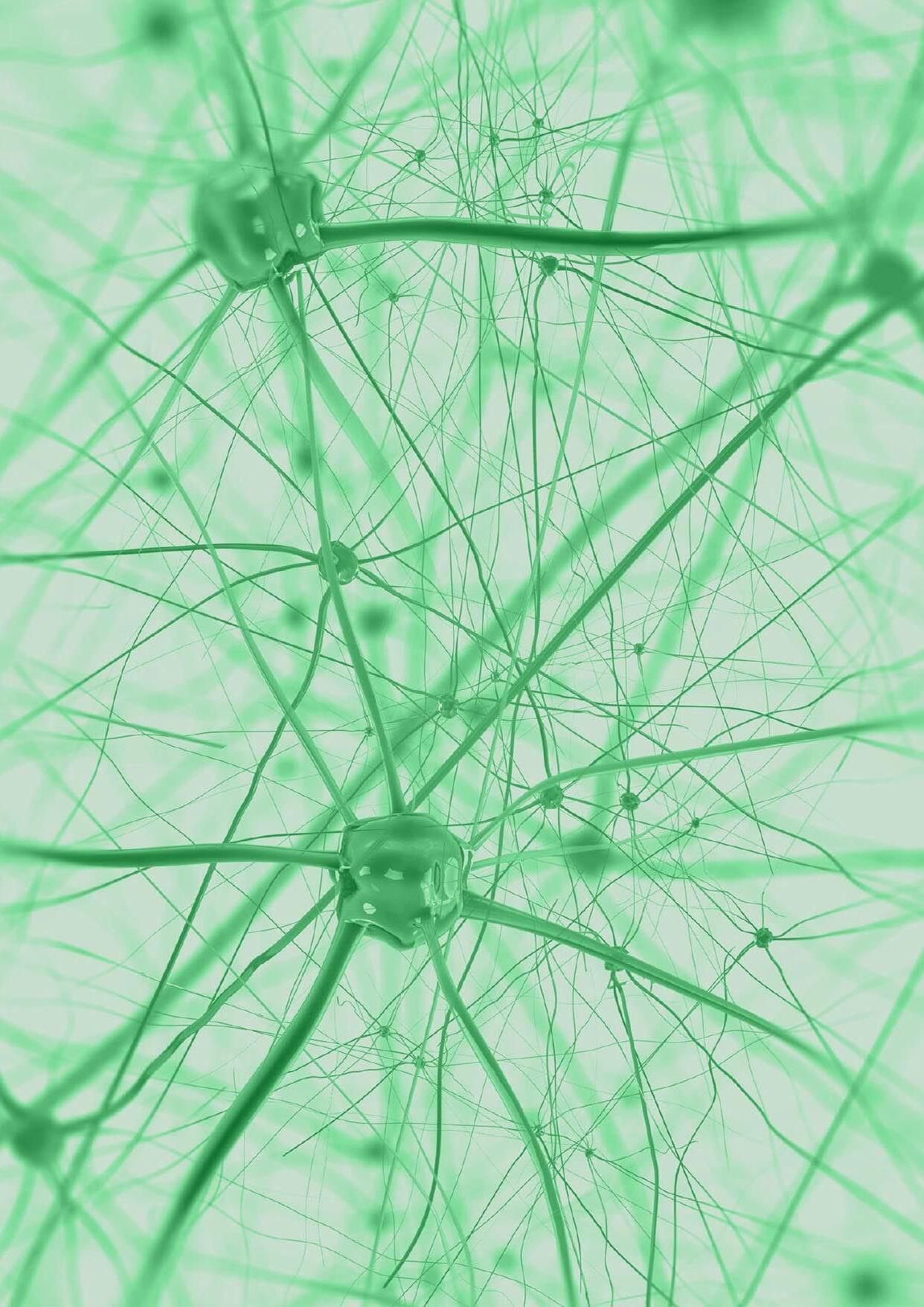


Like many of you, I was disappointed to hear of the cancellation of the APS ASM in Hobart. However, it was not surprising that this difficult decision was made. Be sure you check out the report from APS President Anne Burke, who addresses the response of the Board to the current challenges associated with COVID-19. Her report also provides updates on several other good news items not related to the coronavirus, such as the return of the APS/ APRA/CFK clinical research grant. Keep your eyes peeled for further information on how to apply.
Spinal cord stimulation for pain management has been occurring since at least 1967. This month, APS members Marc Russo, Charles Brooker, Michael J Cousins, Tillman Boesel, Lewis Holford, and their colleagues share their long-term outcome results of using a novel closed-loop spinal cord stimulation system. The results from the abstract seem very encouraging, so I recommend checking out the complete article if this piques your interest.
Stephanie Mathieson and her colleagues also share their recent publication looking into the who, why, and how many chronic noncancer pain patients are prescribed an opioid. Research such as this is vital given the ongoing global debates and discussions relating to the use of opioids for the management of pain.
Frontiers in Psychology is seeking submissions for a special research topic entitled “Coping with the Pediatric Coping Literature: Innovative Approaches to Move the Field Forward”. With guest editors, including Line Caes (University of Stirling),
this is a great opportunity for members with a research interest in all aspects of coping in paediatric pain and other chronic conditions to contribute. Otherwise, I’m sure there will be some great submissions from the international paediatric pain community.
It’s also great to hear that the Queensland Social Evening for APS members was a success. Events such as these serve as a great opportunity for continued engagement with the pain community on a more regular basis outside of the ASM. I look forward to attending the next Victorian social event and to keep hearing positive feedback about these events across the rest of the country. Understandably, it might be a while before these occur. Skype or Zoom social engagement might have to be the way to go for the time being.
Take care.
Lincoln Tracy, EditorHi Everyone,
To say it’s been a tad crazy of late is an understatement.
COVID-19 has well and truly captured the attention of the world. In all the panic and uncertainty surrounding this issue, it’s important we remember that increasingly large portions of our community are adversely affected by either the virus itself or the measures that are necessary to get ahead of the curve in this pandemic. Our thoughts are with everyone who is struggling at this time.
One of those necessary measures was the cancellation of all large gatherings including, of course, our Annual Scientific Meeting (ASM). This was the first time that an APS conference has ever been cancelled and so has required a lot of input from the Board, Secretariat, and DC Conferences to work through all the various issues – we’re usually focussed on putting the conference together, not pulling it apart! We understand that this is a time of uncertainty and we sincerely thank all of you for your patience and understanding as we endeavour to resolve things as quickly as possible.
Before COVID-19 occupied quite so much of our consciousness, we were engaged in the usual range of activities. Below is a brief update on our progress against our 20192021 strategic plan.
EDUCATION: The working group for the Australasian Pain School has developed an exciting program for our inaugural participants. As you would appreciate, the proposed 2020 launch has been deferred. We will keep you posted as revised plans progress. The APS has also been proud to partner with a range of agencies on government grants for pain education and we hope to be able to bring some news on those shortly.
ADVOCACY: Trudy Maunsell (PresidentElect) and I were pleased to attend a strategic planning session at ANZCA House, exploring how the pain sector can enact the pillars of the National Strategic Action Plan for Pain Management. We’d like to offer our thanks to the Faculty of Pain Medicine (FPM) and the Australian and New Zealand College of Anaesthetists (ANZCA) for hosting the day; it was incredibly heartening to see the level of enthusiasm and collaboration that was present in the room. The APS was also invited by the TGA to participate in the “Appropriate use of opioids Stakeholder Workshop” and is now an invited representative on the Opioids Regulatory Communications Committee, and we thank Dr Tim Ho (NSW State Director) for his work in this space. We are also pleased to have APS ably represented by Ms Fiona Hodson (Immediate Past President) and Dr Tim Ho on the Rural Health Outreach Fund (RHOF) Pain Management Services NSW Reference Group. Lastly, I had the pleasure of attending an MRFF roundtable in Canberra discussing priorities for research regarding medicinal cannabis for cancer pain.
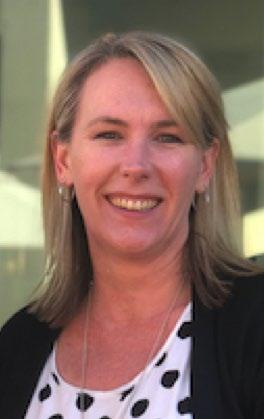
RESEARCH: We are thrilled to announce that the APS/APRA/CFK clinical research grant for pain in childhood research is back for another three years of funding! Our friends at Cops for Kids (CFK) have committed another $90,000 (3 x $30,000 annual grants) to this endeavour.
SERVICES AND RESOURCES: We are progressing with the revision of our position statement regarding The Role of the Psychologist in the Management of Persistent Pain and the development of the second edition of the Pain Management Guide (PMG) toolkit (an important complement to our Pain in Residential Aged Care Facilities book). Thanks to Dr Laura Prendergast (VIC State Director) and Dr Steven Savvas (National Aging Research Insitute) for their leadership of these projects.
MEMBERSHIP: Local networking events have rolled out in TAS, QLD, and ACT, with more to come in other states after social distancing measures have been revised. As you will see in this edition, we’ve had some great feedback so far on those events. Our AGM will need to take a different format this year but we are very much looking forward to connecting with you in a new way and hearing your views on key issues for APS.
GOVERNANCE: We have completed our first self-evaluation as a member organisation of the Australian Ethical Health Alliance (AEHA) with a follow-up review due shortly. As you might recall, joining AEHA was a strategic decision to help ensure that we continue to strengthen and refine our governance practices. As our AEHA representative, Dr Michelle Harris (SA State Director) will provide some feedback about that evaluation process and the outcomes in due course.
As always, I’m very happy to field questions or receive feedback from members so please don’t hesitate to reach out if there’s something you’d like to discuss.
Until next time…
All the best Anne
As you will now be aware, unfortunately the 2020 Australian Pain Society 40th Annual Scientific Meeting will not proceed.

Firstly, we thank you all for your patience as the APS Board works through the logistics of what this means for the Society and for you, as a delegate.
This information aims to answer your questions relating to the conference, your registration fees, accommodation bookings, and what happens next.
The APS is offering full refunds to all delegates, these are available by request and in writing. To request a refund please email aps2020@dcconferences.com.au
Alternatively, some members have expressed an interest in donating all/part of their refund to the APS as a charitable, tax deductable donation. If you would like to do this then please email aps2020@ dcconferences.com.au, outlining this request. This will be passed on to the APS Secretariat who will send through a receipt for your records.
The deadline for all requests is Wednesday 8 April 2020. Refunds will not be issued for requests made after this time.
If you paid with a credit card:
• Your refund will be returned to this card.
If you, or your organisation, made payment via an EFT bank transfer:
• Please provide, via email, the appropriate bank details for the refund, including:
• Account Name
• BSB
• Account Number
• International Banking code, if required. If we don’t hear from you by 5.00 pm (AEST) on Wednesday 8 April 2020, we will assume you are happy to have your fees used to help the APS cover the costs associated with the cancellation of the 2020 ASM.
If you booked accommodation through the APS 2020 registration form, you will not be charged a cancellation fee from the Hotel Grand Chancellor, The Old Woolstore, or Mantra on Collins.
All accommodation booked through the APS 2020 registration form has been cancelled. If you would like to rebook this accommodation, please do this directly with the hotel.
If you booked accommodation separately, you will need to contact your accommodation provider directly.
Unfortunately the APS is unable to cover any costs delegates bear from cancelled flights. For further information on your airline’s current cancellation policy please contact them directly.
Pain in Residential Aged Care Facilities: Management Strategies
Delegates who had pre-ordered a copy of Pain in Residential Aged Care Facilities: Management Strategies will have their book posted to them. Street addresses are preferred; if you need to change your address or have any enquiries regarding your order please contact aps@apsoc.org.au
All KeepCup orders have been cancelled, refunds will be given on request. KeepCups may be available to order for collection at APS 2021.
So, what happens next?
Please be patient; this is unprecedented.
We expect the refund process to take 10-21 days. You will receive a confirmation email once your refund has been processed.
And don’t forget, we’ll be back and better than ever in 2021! APS 2021 will be held from 18-21 April 2021 at the National Convention Centre, Canberra. Please visit the conference website here: www. dcconferences.com.au/aps2021.
Further information on APS 2021 will be sent out in the coming months, but we have some exciting speakers already confirmed and we can’t wait to catch up with you all next year.
Kind regards,
Dr Anne Burke President Australian Pain Society
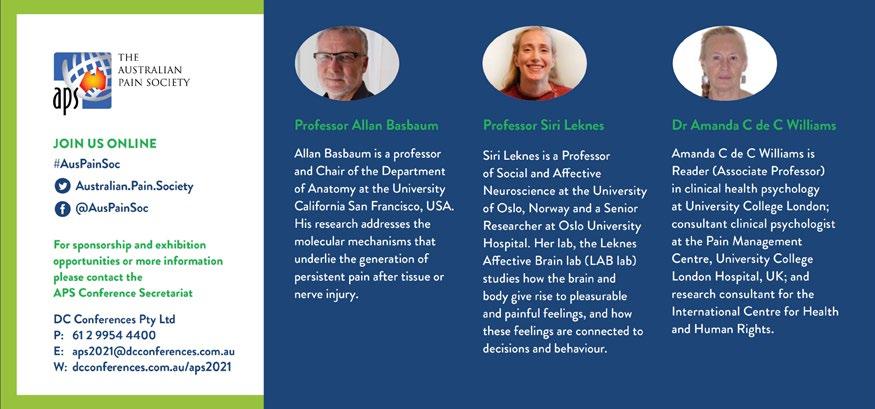
Thank you to APS members Marc Russo, Charles Brooker, Michael J Cousins, Tillman Boesel, Lewis Holford, and their colleagues Nathan Taylor, Richard Sullivan, Erin Hanson, Gerrit Eduard Gmel, Nastaran Hesam Shariati, Lawrence Poree, and John Parker for sharing the following recent publication:
Article first published online: 05 February
2020
Journal Reference: Neurosurgery
DOI: https://doi.org/10.1093/neuros/ nyaa003
Link: https://academic.oup.com/ neurosurgery/advance-article/doi/10.1093/ neuros/nyaa003/5727863
Background
Spinal cord stimulation (SCS) activates the dorsal column fibers using electrical stimuli. Current SCS systems function in fixedoutput mode, delivering the same stimulus regardless of spinal cord (SC) activation.
Objective
To present long-term outcomes of a novel closed-loop SCS system that aims to maintain the SC activation near a set target level and within a therapeutic window for each patient. SC activation is
measured through the evoked compound action potential (ECAP) generated by each stimulus pulse.
Fifty patients with lower back and/or leg pain who were successfully trialed received a permanent system (Evoke; Saluda Medical, Sydney, Australia). Ratings of pain (visual analog scale), quality of life, function, sleep, and medication use were collected at baseline and at each visit. SC activation levels were reported in summary statistics. The therapeutic window for each individual patient was defined as the range of ECAP amplitudes between sensation threshold and uncomfortably strong stimulation.
At 12 mo, the proportion of patients with ≥50% relief was 76.9% (back), 79.3% (leg), and 81.4% (overall), and the proportion with ≥80% pain relief was 56.4% (back), 58.6% (leg), and 53.5% (overall). Patients spent a median of 84.9% of their time with stimulation in their therapeutic window, and 68.8% (22/32) eliminated or reduced their opioid intake. Statistically significant improvements in secondary outcomes were observed.
The majority of patients experienced more than 80% pain relief with stable SC activation, as measured by ECAP amplitude
at 12 mo, providing evidence for the longterm effectiveness of the Evoke closed-loop SCS system.
Key figure (file attached)
Individual patient responses for back pain VAS reduction at 12 mo. VAS, visual analog scale.

Declaration
This study was funded by Saluda Medical Pty Ltd Dr Russo has served as a consultant for Abbott, Boston Scientific, Mainstay Medical, Medtronic Inc, Nevro Corp, Presidio Medical, Saluda Medical Pty Ltd, and Stimwave. Dr Brooker has served as a consultant for Sequirus and as an investigator on sponsored research for Abbott, Medtronic Inc, Phosphagenics, RRMedsciences, Saluda Medical Pty Ltd, and Spinal Modulation. Dr Cousins has served as a consultant for Saluda Medical. Mr Sullivan has served
as a consultant for Abbott, Medtronic, Nevro, and Seqirus. Ms Hanson, Dr Gmel, Dr Shariati, and Dr Parker are employees of Saluda Medical. Dr Poree has served as a consultant for Medtronic, Sollis, and Circuit Tx; a consultant with stock options for Nalu; a consultant and medical monitor for Saluda Medical; a principal investigator for the Abbott DRG study; a past consultant for StimWave; and a past principal investigator and shareholder for Spinal Modulation.
Thank you to APS member Stephanie Mathieson and her colleagues Graeme Wertheimer, Chris Maher, Christine Lin, Andrew McLachlan, Rochelle Buchbinder, Sallie Pearson, and Martin Underwood for sharing the following recent publication:
Article first published online: 25 February 2020
Journal Reference: Journal of Internal Medicine
DOI: https://doi.org/10.1111/joim.13026
Link: https://onlinelibrary.wiley.com/doi/ abs/10.1111/joim.13026
Objective/Background/Aims/ Introduction
Guidelines now discourage opioid analgesics for chronic noncancer pain because the benefits frequently do not outweigh the harms. We aimed to determine the proportion of patients with chronic noncancer pain who are prescribed an opioid, the types prescribed and factors associated with prescribing.
Database searches were conducted from inception to 29 October 2018 without language restrictions. We included observational studies of adults with chronic noncancer pain measuring opioid prescribing. Opioids were categorized as weak (e.g. codeine) or strong (e.g. oxycodone). Study quality was assessed using a risk of bias tool designed for observational studies measuring prevalence. Individual study results were pooled using a random‐effects model. Meta‐regression investigated study‐level factors associated with prescribing (e.g. sampling year, geographic region as per World Health Organization). The overall evidence quality was assessed using Grading of Recommendations Assessment, Development and Evaluation criteria.
Of the 42 studies (5,059,098 participants) identified, the majority (n = 28) were from the United States of America. Eleven studies were at low risk of bias. The pooled estimate of the proportion of patients with chronic noncancer pain prescribed opioids was 30.7% (95% CI 28.7% to 32.7%, n = 42 studies, moderate‐quality evidence). Strong opioids were more frequently prescribed than weak (18.4% (95% CI 16.0–21.0%, n = 15 studies, low‐quality
evidence), versus 8.5% (95% CI 7.2–9.9%, n = 15 studies, low‐quality evidence)). Meta‐regression determined that opioid prescribing was associated with year of sampling (more prescribing in recent years) (P = 0.014) and not geographic region (P = 0.056). Opioid prescribing for patients with chronic noncancer pain is common and has increased over time.
Opioid prescribing for patients with chronic noncancer pain is common and has increased over time.
Declaration
No funding was received to conduct this review.

Reminder that we are keen that members inform us when they have publications so that this can be shared with your APS colleagues.
Please send the newsletter editor (via the APS Secretariat, aps@apsoc.org.au) the title, authors and reference (i.e. the journal, volume etc.) of the article, preferably with a short explanatory note to give our readers the gist of the article, e.g. the conclusions part of the abstract; if you would like to supply a short commentary on the article, even better.
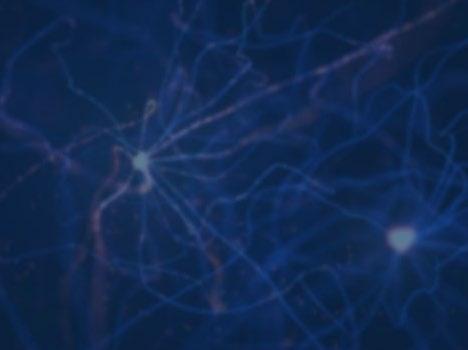
These newly renamed and expanded grants are available to Nursing, Allied Health Professionals and Trainee/Early Career Researchers.
The Clinical Professional Connection Grant is designed to support APS members in the following ways:
• Nursing or allied health clinicians from non-metropolitan locations to visit a major metropolitan multidisciplinary pain centre, for the duration of generally one (1) week. Visits are intended to support professional learning (including the exploration of new models of care) that can inform service development in non-metropolitan services with single or limited discipline profiles;
• Trainee/early career researchers (i.e., researchers currently undertaking their PhD, or within five (5) years of PhD conferral) to visit a major metropolitan multidisciplinary pain centre for the purpose of conducting/initiating a clinically-oriented research project that involves the development of a new partnership/collaboration with allied health, nursing or medical pain specialists. Projects can use basic science or applied methods, but the clinical relevance of the project must be clearly articulated.
See website for Eligibility Criteria, Terms and Conditions, and application form.
Women currently working in the health and wellbeing sector have a final opportunity to register their interest in a scholarship worth up to $5,000 to support participation in an accredited leadership development program.

It is unsure when this funding will be available again, and the registration deadline has been extended until April 3. Find out more here: www.wla.edu.au/health.html

Do you have complex regional pain syndrome (CRPS) of the upper limb? You may be eligible for our experiment.
We are investigating how the brain processes sensory information. We are reading the brain’s responses to brief electrical stimulation to the hands, using electrodes on the scalp. You will also be given some questionnaires to complete.
This experiment involves a 2-hour (approx.) lab visit to the University of South Australia.
We will reimburse you $20/session for your time and will cover your transport expenses.
Please contact Flavia at flavia.dipietro@sydney.edu.au if you are interested.
The study is approved by University of South Australia Human Research Ethics Committee, reference number 0000036055.
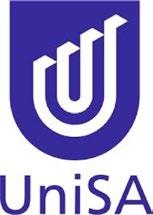
We’re excited to inform you and invite your submission for a special Research Topic within Frontiers in Psychology.
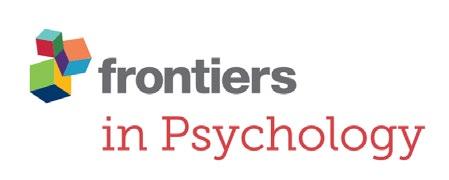
Topic: “Coping with the Pediatric Coping Literature: Innovative Approaches to Move the Field Forward”
Guest editors: Line Caes, C. Meghan McMurtry, & Christina Duncan
Abstracts due: May 2, 2020
Full papers due (for invited submissions only following abstract review): December 17, 2020
AIM: The goal of this Research Topic is to bundle innovative and cuttingedge research that increases our understanding of the role and underlying mechanisms of coping strategies within pediatric chronic illnesses.
Types of papers: We welcome a wide range of articles that address any pediatric chronic health condition and disease, such as arthritis, asthma, cancer, chronic pain, cystic fibrosis, diabetes, gastrointestinal conditions, obesity, sickle cell disease, and injury.
Core content: Articles need to contribute to the improvement of our understanding of the role of and/or underlying mechanism of coping strategies in pediatric chronic illness. For instance, topics that are within the scope of this Research Topic are: coping with treatment burden, chronic pain, social implications, treatment adherence, school functioning, hospitalization, physical limitations, sleep, peer relationships, family factors, activities of daily living, and developmentally appropriate tasks or independence. Although children with a chronic illness often need to undergo painful medical procedures (e.g., blood draws), articles on coping with medical procedures specifically are NOT within the scope of this Research Topic.
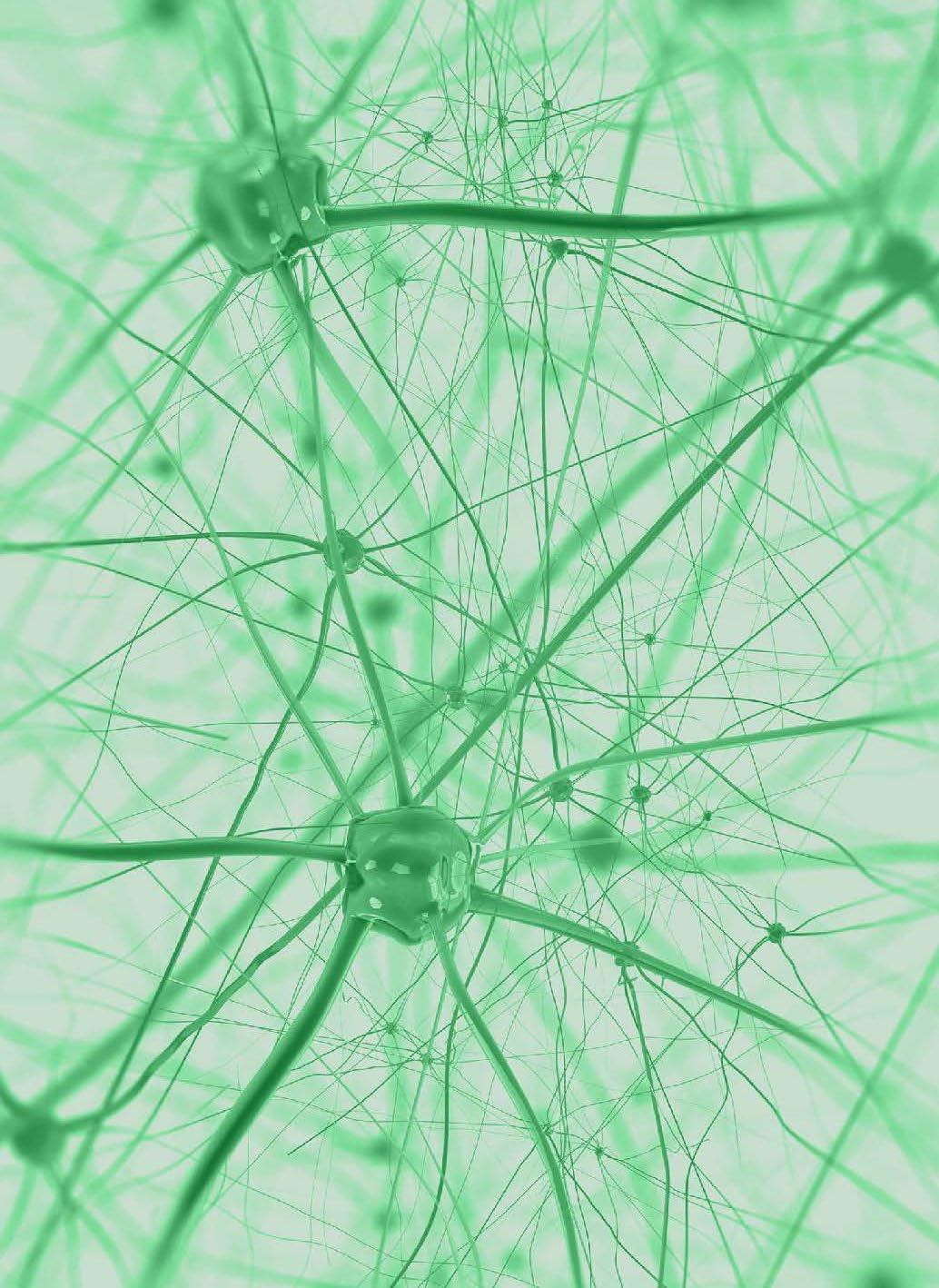
Within the broad areas of interest outlined above, we are particularly interested in articles that drive the field forward in terms of advances in conceptualization, measurement, treatment, and overall clinical applications. We are looking for work that adds specificity and clarity to a broad and challenging topic area and that has potential to influence research and care beyond a given health condition. Therefore, authors should clearly indicate in their abstract how they foresee that their work will clarify, improve or advance existing concepts, frameworks or models of coping, by including actionable suggestions for future research and clinical applications.
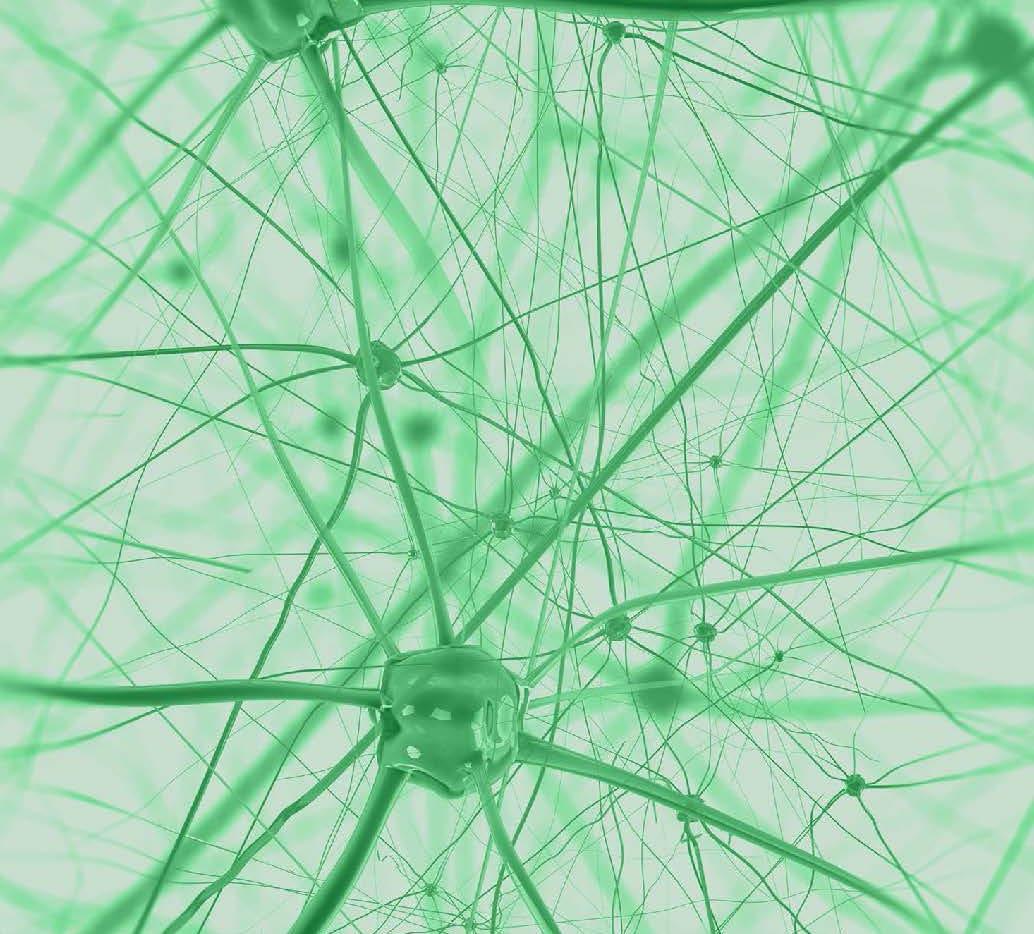
More information on the Research Topic can be found at https://www. frontiersin.org/research-topics/13066/coping-with-the-pediatric-copingliterature-innovative-approaches-to-move-the-field-forward
An LOI in abstract form MUST be submitted prior to any manuscript.
Abstracts deadline: May 2, 2020. Abstracts are max. 350 words long and are submitted at https://www.frontiersin.org/research-topics/13066/coping-withthe-pediatric-coping-literature-innovative-approaches-to-move-the-fieldforward
Invitations to submit the full manuscripts will be extended on the basis of the abstract review. Full manuscripts will undergo typical peer review.
If you have any further questions, please email me at line.caes@stir.ac.uk




Abstract submissions Now open

Concurrent Workshops Deadline 22 April 2020


Free Paper and Poster Deadline 20 May 2020
Online Registration opens 28 May 2020

• Pain Management during COVID-19 viral infection: Released on 26MAR20 from the British Pain Society: https://www.britishpainsociety. org/static/uploads/resources/files/ Pain_Management_during_COVID19_viral_infection.pdf
• Latest opioids data from the Australian Bureau of Statistics: https://www.abs.gov.au/ausstats/ abs@.nsf/MediaReleasesByCatalogue/ CC21BEAE2026450DCA25847F0013A 28F?OpenDocument
• Australia’s annual overdose report 2019: http://www.penington.org. au/australias-annual-overdose-report-2019/
• The Third Australian Atlas of Healthcare Variation: https://www. safetyandquality.gov.au/atlas
• Painaustralia eNewsletter latest issue, available online at: http:// www.painaustralia.org.au/media/ enews
• ePPOC- electronic Persistent Pain Outcomes Collaboration: For more information about ePPOC, refer to the website: http://ahsri.uow.edu.au/ eppoc/index.html
• PainHEALTH website: http://painhealth.csse.uwa.edu.au/
• Stanford University: CHOIR Collaborative Health Outcomes Information Registry: https://choir. stanford.edu/
• Opioid Podcasts for GPs: 20 week series from the Hunter Postgraduate Medical Institute: http://www.gptraining.com.au/recent-podcasts
• Airing Pain: Pain resources via an online radio show produced by Pain Concern, a UK registered Charity: http://painconcern.org.uk/airing-pain/
• Digital Health Guide: Developed by Primary Health Network Tasmania: https://digitalhealthguide.com.au/Account/ LogOn?ReturnUrl=%2fSpecialtyForm ulary%2f2
At login. Username: connectingcare Password: health
• Indigenous Resources: New webpage on the APS website aggregating Indigenous resources: https://www. apsoc.org.au/Indigenous-Resources
• Choosing Wisely Australia – News & media: http://www.choosingwisely. org.au/news-and-media
• Over the counter codeine – changes to supply: https://www.nps.org.au/ medical-info/clinical-topics/over-thecounter-codeine-changes-to-supply
• Medicines with codeine – what you need to know: https://www.nps. org.au/medical-info/consumer-info/ medicines-with-codeine-what-youneed-to-know
• Codeine information hub: https:// www.tga.gov.au/codeine-info-hub
• Brainman and Pain Tool Kit translations, SEP15: http://www.aci. health.nsw.gov.au/chronic-pain/ translated-resources
• Pain Management Resources: http://www.aci.health.nsw.gov.au/ resources/pain-management
• Quicksteps to Manage Chronic Pain in Primary Care: http://www. aci.health.nsw.gov.au/chronic-pain/ health-professionals/quick-steps-tomanage-chronic-pain-in-primarycare
• Built into Quicksteps: “How to de-prescribe and wean opioids in general practice”: http://www.aci. health.nsw.gov.au/chronic-pain/ health-professionals/quicksteps-to-manage-chronic-painin-primary-care/how_to_de-prescribe_and_wean_opioids_in_general_practice
• A list of helpful apps for consumers and clinicians now available at: http://www.aci.health.nsw.gov.au/ chronic-pain/health-professionals/ management-of-chronic-pain
• Chronic Pain in the ED: https://www. aci.health.nsw.gov.au/networks/ eci/clinical/clinical-resources/ clinical-tools/pain-management/ chronic-pain-in-the-ed

The APS hosted in Brisbane their Social Evening on the 11th March for their Queensland members. It was hosted by President Elect, Trudy Maunsell and APS QLD Director, Joyce McSwan. The evening was delightful and members who attended were pleased to build interprofessional relationships and saw that it was a valuable opportunity given that it is not always easy to come together. Attendees not only had fun meeting new members and reconnecting with known colleagues but there were lots of interchange of ideas and sharing experiences. There will be events of this sort in other areas of Queensland in the near future.

Mr Paul Attenborough Osteopathy
Dr Michael Johnco Osteopathy
These dates and events are current at the time of publication. Due to the current health concerns with COVID-19, we recommend you make your own enquiries before planning to attend
4-8 Aug 2020
International Association for the Study of Pain (IASP)
19th World Congress on Pain
RAI Amsterdam Convention Centre, Amsterdam, Netherlands https://www.iaspworldcongress.org
7-8 Aug 2020
Neuromodulation Society of Australia & New Zealand (NSANZ) 14th Annual Scientific Meeting Neuromodulation, Value Based Care
Sofitel Brisbane Central, Brisbane, QLD https://dcconferences.eventsair.com/nsanz2020/
17-20 Sep 2020
Australian & New Zealand Society of Palliative Medicine ANZSPM
Australian and New Zealand Society of Palliative Medicine Conference
Pullman Auckland, Auckland, New Zealand https://willorganise.eventsair.com/2020-anzspm-conference/
22-25 Sep 2020
Rehabilitation Medicine Society of Australia and New Zealand (RMSANZ) 5th Annual Scientific Meeting: Forging Alliances, New Horizons Gold Coast Convention and Exhibition Centre, Gold Coast, QLD https://www.dcconferences.com.au/rmsanz2020/
6-8 Oct 2020
International Federation of Orthopaedic Manipulative Physical Therapists (IFOMPT)
IFOMPT 2020: Innovate - Integrate Melbourne Convention and Exhibition Centre, Melbourne, VIC https://ifomptconference.org
4-7 Nov 2020
Wounds Australia
Wounds 2020
Brisbane Convention and Exhibition Centre, Brisbane, QLD https://wounds2020.com.au/
11-13 Nov 2020
Clinical Oncology Society of Australia (COSA)
47th Annual Scientific Meeting
Convention Centre, Brisbane, QLD
https://www.cosa.org.au/events/annual-scientific-meeting/
26-28 Nov 2020
Australian and New Zealand Association of Oral & Maxillofacial Surgeons
ANZAOMS 2020 Confernce
Hobart, Tasmania
https://www.anzaomsconference.com.au/
4-6 Mar 2021
Exercise & Sports Science Australia (ESSA)
Research to Practice 2020
Perth Convention and Exhibition Centre, Perth, WA
http://researchtopractice2020.com.au
25-28 Mar 2021
IASP Pain in Childhood SIG
ISPP 2021 13th International Symposium on Pediatric Pain: Knowledge, Growth, Practice
Cordis Hotel, Auckland, New Zealand
https://www.ispp2021.org
18-21 Apr 2021
Australian Pain Society
41st Annual Scientific Meeting
National Convention Centre Canberra, ACT
https://www.dcconferences.com.au/aps2021/
21-23 May 2021
Australian Psychological Society College of Clinical Psychologists 2020 Annual Conference
Complexity in Practice
Sofitel Brisbane Central, Brisbane, QLD
https://www.psychology.org.au/APS-CCLIN-Conf/2020
23-25 Jun 2021
Occupational Therapy Australia
TBA
Cairns Convention Centre, Cairns, QLD
https://www.otaus2021.com.au
VISION:
All people will have optimal access to pain prevention and management throughout their life.
MISSION:
The Australian Pain Society is a multidisciplinary association whose mission is to advance pain prevention, management and clinical practice.
In order to achieve our mission, the Australian Pain Society will provide:
• Education
• Advocacy
• Research
• Services and resources

• Membership
• Good governance and operations
PRESIDENT:
Dr Anne Burke
Central Adelaide Local Health
Network, Royal Adelaide Hospital
Adelaide SA 5000
Tel: 08 8222 5403 | Fax: 08 8222 5904
PRESIDENT—ELECT:
Ms Trudy Maunsell
Acute Pain Service
Princess Alexandra Hospital
Woolloongabba QLD 4102
Tel: 07 3176 5547 | Fax: 07 3176 5102
SECRETARY:
Dr Will Howard
Director, Pain Service
Austin Health
Studley Road
Heidelberg VIC 3084
Tel: 03 9496 3800 | Fax: 03 9459 6421
TREASURER:
Mr Tim Austin
Camperdown Physiotherapy
Inner West Pain Centre
100 Carillon Avenue
Newtown NSW 2042
Tel: 02 9517 1787 | Fax: 02 9516 2491
ACT DIRECTOR:
Dr Andrew Watson


Calvary Hospital
Canberra ACT 2617
Tel: 02 6201 6352
NSW DIRECTOR: Dr Tim Ho



Royal Prince Alfred Hospital
Inner West Pain Centre
100 Carillon Avenue
Newtown NSW 2042
Tel: 02 9517 1764 | Fax: 02 9517 1832
NT DIRECTOR:
Ms Diann Black
Recovery
Royal Darwin Hospital
Casuarina NT 0811
Tel: 08 8931 1029 | Fax: 08 8922 8325
QLD DIRECTOR:
Mrs Joyce McSwan
Gold Coast Primary Health Network
Persistent Pain Program, QLD
Tel: 0412 327 795 | Fax: 07 3539 9801
SA DIRECTOR:
Dr Michelle Harris

Royal Adelaide Hospital and Lyell McEwin Hospital
Adelaide SA
Email: michelle.harris2@sa.gov.au
TAS DIRECTOR:
Dinah Spratt
Physiotas Physiotherapy
3/11 Poyston Drive
Shearwater TAS 7307
Tel: 03 6428 7500 | Fax: 03 6424 7811
VIC DIRECTOR:
Dr Laura Prendergast



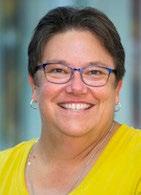


Pain Service, Austin Health
Chronic Pain Clinic, Goulburn Valley Health VIC
Tel: 03 9496 3134 or 03 5832 3020
WA DIRECTOR:
Mr Shadreck Tozana
Functional Revival and Baptistcare
Bethal, 2 Bethal Way Albany WA 6330
Tel: 0437 541 165 | Fax: 08 9841 8480
IMMEDIATE PAST PRESIDENT:
Ms Fiona Hodson
Hunter Integrated Pain Service
John Hunter Hospital Campus
New Lambton NSW 2305
Tel: 02 4922 3435 | Fax: 02 4922 3438
SPC CHAIR:
A/Prof Kevin Keay




Department of Anatomy
University of Sydney
Sydney NSW 2006
Tel: 02 9351 4132 | Fax: 02 9351 2817
IASP LIAISON:
Professor Michael Nicholas
Pain Management Research Institute
Royal North Shore Hospital
St Leonards NSW 2065
Tel: 02 9926 7894 | Fax: 02 9662 6279
Website: www.iasp–pain.org
COMMUNICATIONS COORDINATOR:
Dr Anne Burke
Central Adelaide Local Health
Network, Royal Adelaide Hospital
Adelaide SA 5000
Tel: 08 8222 5403 | Fax: 08 8222 5904
NEWSLETTER EDITOR:
Dr Lincoln Tracy
School of Public Health and Preventive Medicine
Monash University
Melbourne VIC 3004
Tel: 03 9903 0288
PHD SCHOLARSHIP CHAIR:

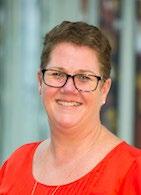
A/Prof Michael Farrell
Department of Medical Imaging and Radiation Services

Monash University
Clayton VIC 3800
Tel: 03 9905 6094 | Fax: 03 9902 9500
SECRETARIAT:
DC Conferences Pty Ltd
PO Box 637
North Sydney, NSW 2059
Tel: 02 9016 4343 | Fax: 02 9954 0666
Email: aps@apsoc.org.au
Website: www.apsoc.org.au